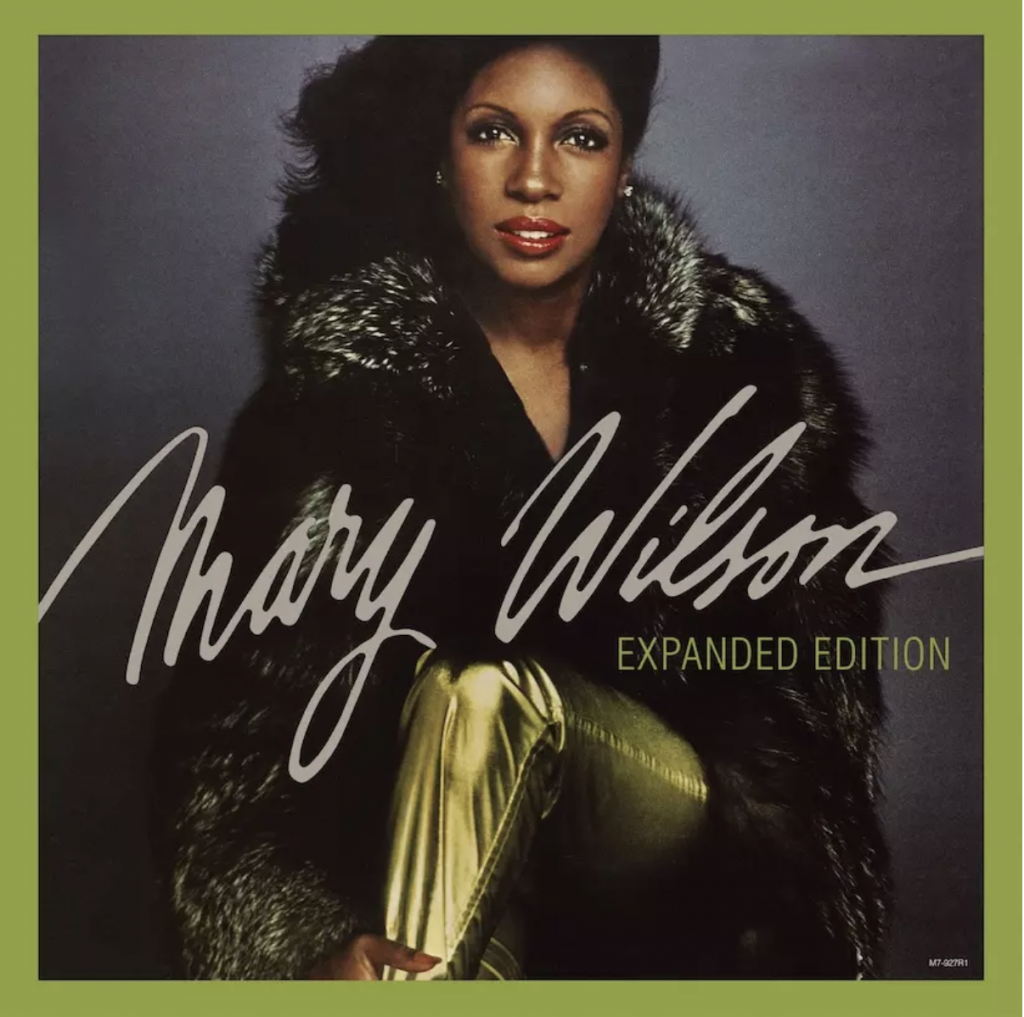Released back in 1979, the former Supreme’s debut solo album has finally been reissued, just months after her passing.
In an interview just 2 days before her death on 8th February Mary Wilson announced that she was working with Universal Music to reissue her self-titled solo album, first released in 1979. Universal have kept their promise to Mary to release the album, and it’s now available on all streaming sites.
It’s safe to say the album was a disappointment for Mary: the first single “Red Hot” just about made #95 on the R&B Charts but the album itself failed to break into the Top 200 on the Billboard Charts.
Produced by Motown stalwart Hal Davis, the album’s overall sound was largely disco. And while disco had taken the world by storm, by 1979 it was on the wane, at least in America. White rock DJs – notorious led by DJ Steve Dahl – began the “Disco Sucks” campaign, in protest of this largely black music genre, popular in the LGBT community. It’s not hard to understand why white rock DJs didn’t like disco, and fought back against the threat from this “other” musical phenomenon.
This culminated in the ‘Disco Demolition Night’ at Comiskey Park in Chicago, where attendees to the baseball could get a discount if they brought a disco record to be blown-up in between games. Steve Dahl led proceedings, and while it was billed as a protest against disco, many attendees brought records by black artists that weren’t disco, from Marvin Gaye to Stevie Wonder. This wasn’t just about bringing down disco, but it put an end to the genre as a musical and cultural force in America.
This backdrop undoubtedly hindered Mary’s attempts to start a solo career. Disco went back underground (although in Europe and elsewhere it never became a dirty word as it did America), and artists associated with the genre found themselves on the scrapheap overnight.

But this isn’t perhaps the only reason why Mary Wilson tanked. After all, in 1980 Diana Ross released her Chic-produced album Diana, which was is primarily disco albeit one with a pop gloss. But, of course, Mary Wilson was not Diana Ross and Motown never gave her as much promotion as the label’s star performer. A lack of support from the label and the ‘Disco Sucks’ movement meant that Mary Wilson largely sank without a trace.
Nevertheless, Motown had originally given Mary a two album deal, and she began working on a follow-up with producer Gus Dudgeon. Together they’d finished 4 tracks for the album when Motown pulled the plug, and the tracks went unreleased – until now. They’re finally being released as bonus tracks on Mary Wilson, along with a more recent recording produced by Richard Davis called ‘Why Can’t We All Get Along Single’. Recorded in 2005, the song was supposedly to be Mary’s “anthem”, although a cynic might suggest it was a response to the failed Supremes reunion tour a few years prior.
Band and label politics aside, listening back to the album now, one this is clear: Mary Wilson really could sing. Casual listeners of The Supremes might be forgiven for thinking that Mary was just one of the women behind Diana Ross who sang the “oohs” and the “aahs”. That in itself is quite hard (you try harmonising), but as her debut album proves Mary Wilson was an underrated singer.
Perhaps more suited to slower, jazzier numbers than up-tempo disco, she still sounds great on tracks like ‘Red Hot’ and ‘I’ve Got What You Need’. Most of the album follows a similar path, but the beautiful ballad ‘Pick Up The Pieces’ breaks the record up nicely.
Long-time Motown producer Hal Davis produced Mary Wilson, and his track record of producing disco-hits for the label was pretty good: he’d produced Diana Ross’s ‘Love Hangover’ and Thelma Houston’s smash-take on ‘Don’t Leave Me This Way’ earlier in the decade. He’d also produced some of the later-era Supremes work, so the pairing with Mary should have been a recipe for success. But with a lack of interest from Motown’s promotional machine and the demise of disco, that solo success never arrived for Mary.
Had she been allowed to complete a second album, it might have been different. The unreleased songs with Gus Dudgeon in show another side to Mary that we never got to see, once the follow-up album was shelved. The ballads ‘You Danced My Heart Around The Stars’ and ‘Love Talk’ really show of Mary’s sultry vocals, while ‘Save Me’ builds and builds, where ‘Green River’ could easily have been a Tina Turner record.
But the record wasn’t to be. Mary and Motown parted ways, but Mary would go on to record an album called Walk The Line to be released on CEO Records in 1992.
The album featured a nice version of ‘I Am Changing’ from Dreamgirls, but it was released a day before CEO Records went into bankruptcy. Walk The Line didn’t reach the top Billboard Albums Charts, and has not yet been re-issued.
After that, Mary did release a few singles (and dance remixes) in later years, but mostly concentrated on touring instead.
The re-release of Mary Wilson might not excite many outside of die-hard Supremes fans, but it’s great to finally have a digital version of the album. It’s also a bittersweet reminder of the solo career Mary could have had, had things worked out better. It’s just so sad that her unexpected passing meant she never got to see her album re-released as she’d hoped just a few days before she died. But, thanks to Universal keeping their promise, we get to hear Mary Wilson one more time.
